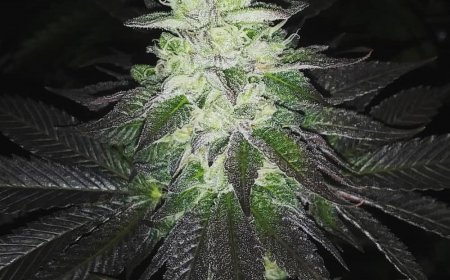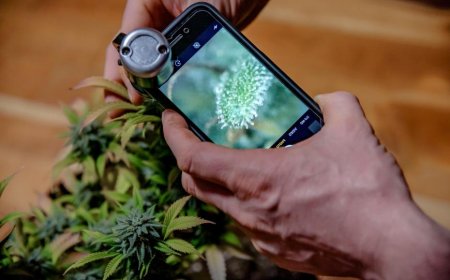Will Incense Get You High?
Will Incense Get You High?" Uncover the truth about the effects of burning incense, its potential risks and benefits, and how to use it safely.
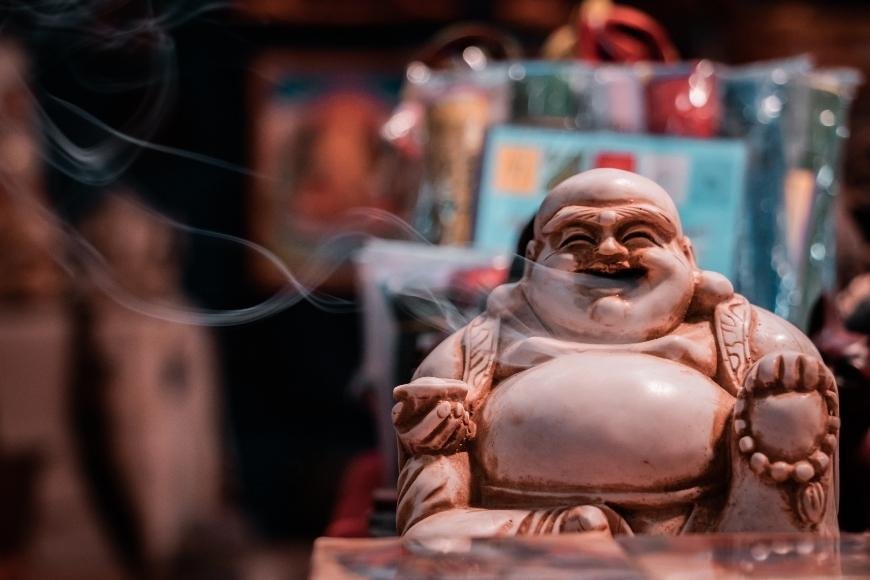
Will incense get you high? This is a question that many young adults often ponder. Incense has been used for centuries, from the ancient Egyptians who employed it in their rituals to the Babylonian culture which burned aromatic plants for its mystical properties. But can lighting an incense stick truly lead you into psychedelic realms?
The unique scents and ambient aromas produced by burning incense sticks partly consist of myriad plant substances, some of which have been known to exert soothing effects on the mind. However, does this mean that directly inhaling an ignited incense stick's smoke will result in intoxicating effects similar to smoking marijuana or other common herbs? This post explores the potential for a 'high' when burning incense, its associated risks and benefits, and how to use it safely.
Table of Contents:
- What is Incense?
- Is Incense Psychoactive?
- How Incense Affects the Brain
- The Risks of Using Incense
- Benefits of Using Incense
- Using Incense Safely: Tips and Tricks
- Where to Find Quality Incense
- FAQs in Relation to Will Incense Get You High?
- Conclusion
What is Incense?
For centuries, incense has been employed in diverse spiritual practices and societies globally. It's a substance that, when burned, releases smoke with a pleasant aroma. A wide array of fragrant incense is obtainable today, each possessing its own individual scent and characteristics.
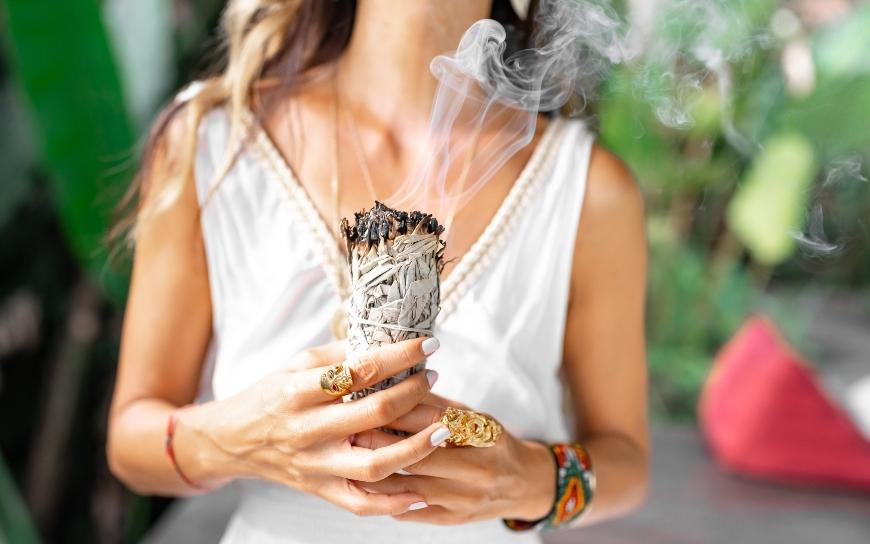
The Different Types of Incense
The most common type of incense is stick incense, which consists of a thin wooden stick coated in aromatic material. Other forms include cone incense (shaped like small cones), resin incenses (hardened sap from trees), and loose-incense blends made from dried herbs, flowers or resins.
Uses of Incense
In addition to their use in religious ceremonies and meditation practices, people often burn incenses at home for relaxation or simply to create an inviting atmosphere. Some also believe that certain types of incenses can have therapeutic effects due to the essential oils they contain.
Psychoactive Properties of Incense
While some people may find burning incenses relaxing or beneficial in other ways, it's important to note that incense doesn't possess any psychoactive properties like cannabis or magic mushrooms do. However, certain types of incense may have a calming effect on the mind and body due to their aroma.
Is Incense Psychoactive?
The question of whether incense is psychoactive is a complex one. A substance is considered psychoactive if it has the ability to alter an individual's mental state, regardless of whether it is cannabis or incense.
Incense has been a part of many cultures for ages, known to provide calming and soothing effects. The aroma produced by burning incense can certainly influence mood and perception, making it technically psychoactive. However, these effects are not comparable to those produced by more potent substances such as psychedelics or narcotics.
Some types of incense contain certain herbs known for their mild psychoactive properties when consumed orally or smoked, but these effects are generally not experienced through normal use of incense. For example, Nag Champa, a popular type of Indian incense often used in meditation practices contains sandalwood which has some sedative properties.
In essence, while the scent from burning incense may help create a peaceful environment conducive to relaxation and perhaps even altered states during deep meditation sessions; inhaling fumes from burned sticks won't get you high in the same way recreational drugs do.
If you're looking for an enhanced sensory experience without resorting to illicit substances though, consider exploring different types of aromatic resins like frankincense or myrrh which have been reported to promote focus and tranquility when used appropriately. Research suggests they might also offer additional health benefits including anti-inflammatory effects.
How Incense Affects the Brain
The effects of incense on the brain can be intricate and varied. While many people use incense for its calming and soothing properties, it's important to understand that these effects are not necessarily indicative of a psychoactive response.
Incense primarily works by stimulating our olfactory system - the part of our brain responsible for processing smells. Inhaling the scent of burning incense can prompt signals to be sent to multiple areas in our brains, such as the limbic system which is associated with emotion, recollection and behaviour.
The Science Behind Incense
A study published in The Journal of Neuroscience found that certain types of frankincense activate ion channels in the brain known to alleviate anxiety or depression. However, this does not mean that all types or even most types of incenses have similar effects.
In contrast with substances like cannabis or magic mushrooms, which directly interact with receptors in your brain causing altered states of consciousness (getting high), incenses do not have such direct interaction and hence do not get you high.
Potential Risks of Incense
This doesn't mean there aren't potential risks associated with using them though; excessive inhalation can lead to respiratory issues while some poorly manufactured ones might contain harmful chemicals. Therefore it's crucially important to source your products from reputable vendors who prioritize quality and safety above everything else.
So, while incense may not have the same effects as other psychoactive substances, it can still have a significant impact on our brains and overall well-being. As with anything, moderation and caution are key.
The Risks of Using Incense
Nevertheless, there may be possible risks that should be taken into consideration when using incense.
Inhalation of Smoke
Burning incense involves combustion, which ultimately leads to long-term inhalation of incense smoke, and can cause respiratory issues such as asthma and even lung cancer, due to the presence of particulate matter and toxic compounds like benzene and formaldehyde. This is due to the presence of particulate matter and toxic compounds like benzene and formaldehyde which are released when incense burns.
Allergic Reactions
Some people may experience allergic reactions or sensitivity to certain types of incense. Symptoms can include headaches, dizziness, nausea, and skin irritation.
Mental Health Concerns
Prolonged use of psychoactive substances found in some types of herbal incense can alter brain chemistry leading to dependency or addiction over time if not used responsibly.
Fire Hazards
Improper handling or storage could result in accidental fires making it essential for users to follow safety guidelines while using these products.
Legal Implications
Possession or distribution without proper authorization might land you into trouble depending on your local laws surrounding controlled substances.
It's important to be aware of these risks and use incense responsibly. If you experience any adverse reactions, it's best to discontinue use and consult a healthcare professional.
Benefits of Using Incense
For ages, people have been using incense in numerous societies around the world for its aromatic qualities and possible advantages. One of the most commonly reported advantages is relaxation. Burning incense releases fragrant smoke that can help create a calming environment, reducing stress and promoting tranquility.
Potential Psychoactive Effects
A study published in The Journal of Ethnopharmacology suggests that certain types of herbal incense may have psychoactive effects that could enhance focus and creativity. When you inhale the smoke from burning incense, compounds like linalool might interact with your brain to produce these effects.
Meditation and Yoga Aid
Some people use incense as part of their meditation or yoga practices. It's believed that the soothing scents can aid concentration during these activities by creating an atmosphere conducive to mindfulness and introspection.
Mood-Enhancing Properties
The mood-enhancing properties are another benefit often associated with using herbal incense. Certain aromas such as lavender and sandalwood are known to promote feelings of happiness and positivity according to a research conducted by Mie University School Of Medicine.
Improved Memory Function
Burning specific types like frankincense has even been linked with improved memory function - although more research is needed in this area.
Although incense may provide a range of potential benefits, caution should be taken to avoid the associated health risks that can arise from excessive inhalation when burned indoors without adequate ventilation.
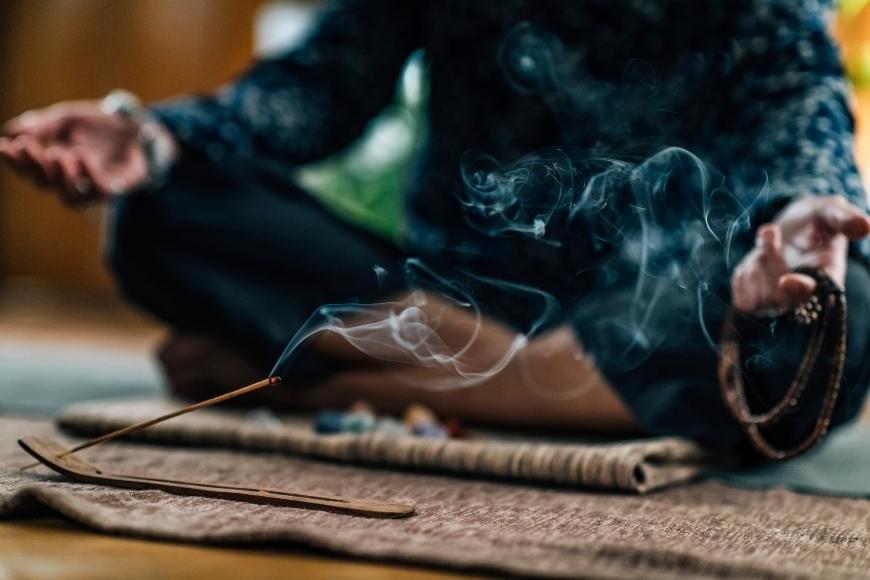
Using Incense Safely: Tips and Tricks
Incense can create a calming atmosphere, but it's important to use it safely. First, make sure to burn incense in an appropriate holder or burner to prevent accidental fires and contain the smoke.
If you're using stick or cone incense, ensure they're completely extinguished after use by pressing them into sand or ash. Avoid direct inhalation of the smoke and burn incense in a well-ventilated area to prevent any potential respiratory issues.
Consider the quality and ingredients of your incense. Cheaper brands may contain synthetic fragrances or other chemicals that aren't safe to inhale regularly. Opt for natural options made with pure essential oils to reduce potential hazards.
Respect others' sensitivities when burning incense, as strong scents could trigger allergies or headaches in some people.
Where to Find Quality Incense
For those searching for premium incense, they can be rest assured that there are numerous trustworthy sources to choose from both on the internet and in physical stores. There are plenty of reputable sources available both online and in-person.
Online Options
One of the most popular places to purchase incense is Azarius, which offers a wide variety of brands and scents. You can also find high-quality incense at specialty stores, which offers a vast selection of natural and handcrafted incense.
In-Person Options
If you prefer shopping in person, check out local health food stores or yoga studios as they often carry premium incense products. For those who like to shop in person, The Incense Shop is a great choice for premium incenses from various places around the globe.
Consider the Ingredients
When purchasing incense, it's important to consider its ingredients. Look for natural resins, essential oils, and plant materials rather than synthetic fragrances that could contain harmful chemicals.
Check the Seller's Reputation
In addition to considering the product itself, take into account the seller's reputation. Read reviews from other customers about their experiences with both the product and seller before making your decision.
Purchasing quality incense can enhance your sensory experience while ensuring safety and peace of mind during use. So do your research well before buying.
FAQs in Relation to Will Incense Get You High?
Can incense make you feel high?
Burning incense won't get you high or give you a euphoric feeling.
What happens if you smoke incense?
Smoking incense can cause respiratory problems and other health risks, so it's not recommended.
Can you huff incense?
Inhaling concentrated incense fumes is harmful and can have adverse effects on your health. You don't want to directly inhale incense stick smoke under any circumstances.
Is it good to smoke incense?
Smoking incense is unsafe due to potential toxins released during combustion that could harm the lungs.
Looking for a safe alternative to incense?
Try using essential oils or diffusers to create a pleasant aroma without the health risks associated with burning incense. Lighting incense involves burning, which will produce potentially harmful smoke.
Conclusion
Will Incense Get You High? While some types may have mild psychoactive effects, it's important to be aware of potential risks such as respiratory irritation and allergic reactions. If you choose to use incense recreationally, purchase quality products from reputable sources and avoid excessive or prolonged exposure to stay safe. While incense may provide benefits like stress relief and relaxation, it's unlikely to produce significant psychoactive effects.

